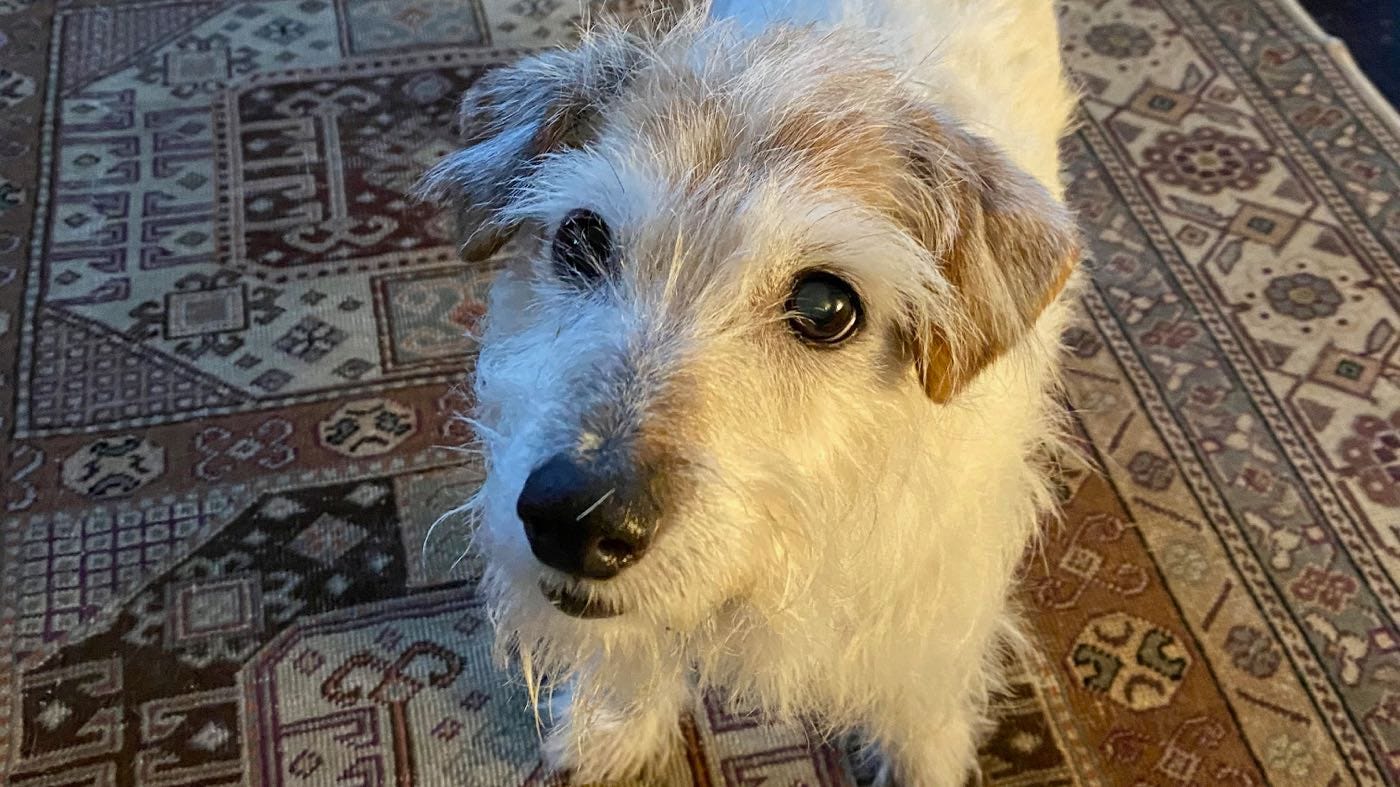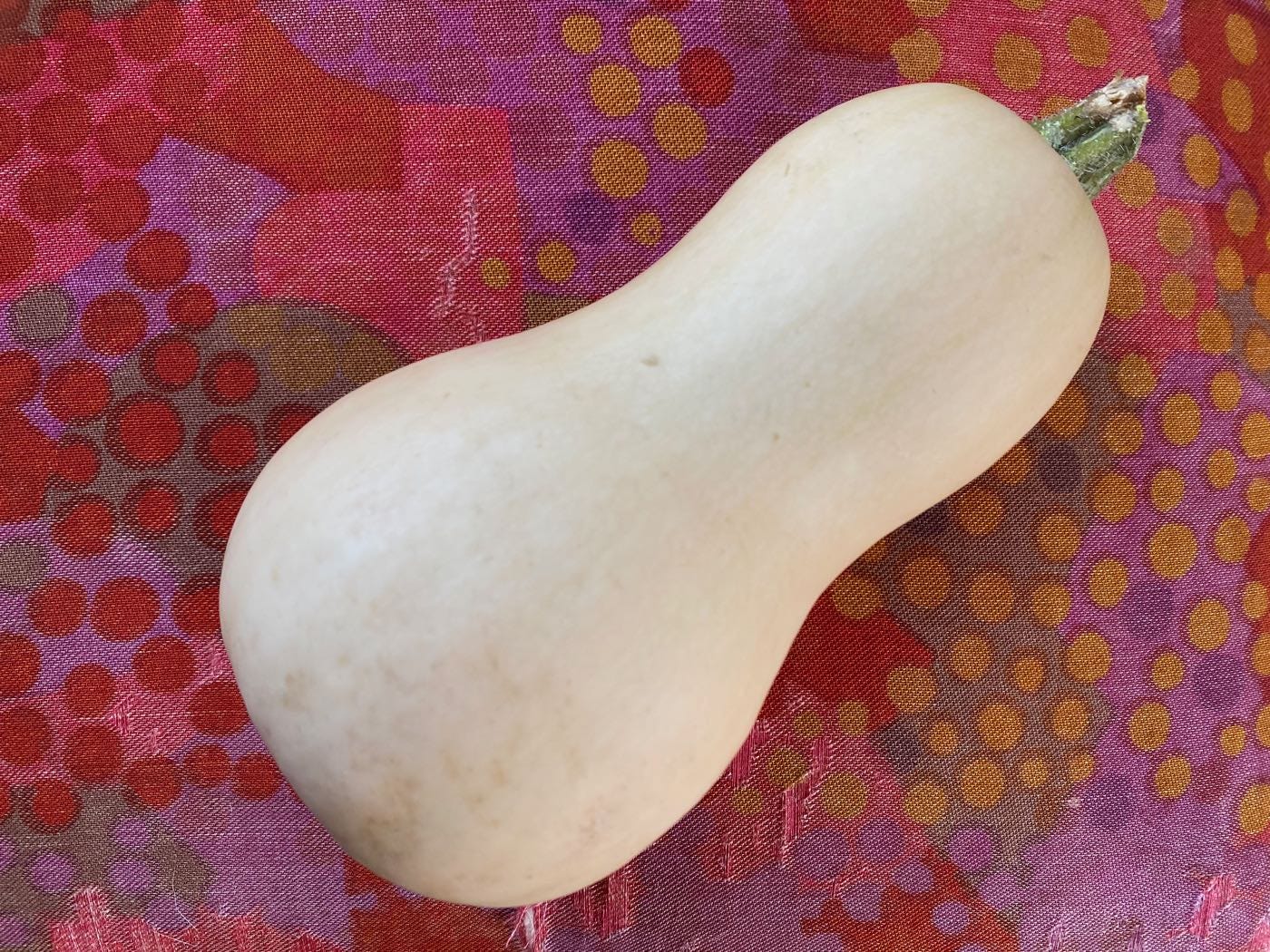Making Our Way Home
Some fragmented thoughts on the concept of home, Evolving Faith 2020, butternut squash, meals thrown together, and the writer's dependency on despair
The 127th Day after Coronatide*
Grand Rapids, Michigan
你好! I hope you’re well, dear reader!
I got home on Sunday evening after a few intense, full days in Atlanta for the Evolving Faith gathering.**
The idea of “home” came up repeatedly during Evolving Faith. Chanequa Walker-Barnes invited us into her home and then challenged those of us who, amidst our wandering through spiritual wilderness, constantly long for some promised land: “As wilderness people, the question before us is not, ‘How do we escape this wilderness?’ or ‘How do we get to the promised land?’” she said. “It is, ‘How do we make home in the wilderness?’” It showed up in songs and in poems. I preached on the topic too: “Return home,” Jesus said to a healed demoniac in the Gospel of Luke, “and declare how much God has done for you.”
As I landed in Grand Rapids and greeted Fozzie and Tristan at the airport, it struck me that this city doesn’t feel like home. Someone called me a Midwesterner the other day, and I just had to laugh. We’ve been here for nine months, Fozzie not even for six. So much of our time in Michigan has been spent in some version of quarantine. In our house, surrounded by the souvenirs that can help make a life, I do feel some of the comfort and familiarity one might associate with home. Puttering around the kitchen with Tristan by my side and Fozzie underfoot feels like home. Plopping on the sofa with my two beloveds and watching the new season of the Great British Baking Show or an episode of Schitt’s Creek feels like home. But outside the front door, I’m still acclimatizing to the customs—waving at strangers, deploying small talk—and learning the contours of the place and its culture. So what, really, makes a place “home”?

Fozzie was glad I returned. He wonders why I left without his consent. [Image description: Fozzie staring me down with what I interpret to be sad and judgmental eyes.]
Home usually suggests belonging. But what about the closeted queer kid whose belonging feels conditional on a lie? What about the skeptic whose belonging in a faith community depends on non-disclosure? What about the many, in this society and so many others around the world, whose accents or skin color or cultural affinities put their belonging at risk amid rhetoric that demands conformity—or even uniformity?
Home typically implies safety and sanctuary, but it isn’t a comforting image for those who don’t enjoy such security. After the conference I exchanged emails with one attendee, Vernée Wilkinson. "The ongoing use of Home as a spiritual metaphor and a safe space is complex when Black women can and are being killed in their own homes and beds by police,” she wrote. (Vernée gave me permission to share her words and to use her name, though she added, “My name doesn't feel that relevant in this form without naming Breonna Taylor and Atatiana Jefferson,” two Black women who were shot to death in their own homes by police officers in 2019.) “There is a privilege, founded in whiteness and colonialism, where home is a place, building, land and property ownership—references that we don't all have the same safe access or privileged connection to."
Vernée is right. I’m grateful for her candid corrective. And to be honest, I don’t entirely know what to do with it, except to name it, to lament it, and to begin to do my small part to make believing in “home” possible for others. Only an impoverished vision of home restricts access of home to oneself and sees it as mine for the taking or the owning. Home has to be a place where one can take a breath without fear of losing that freedom. And home has to be a space in which rest is possible not just for me but also for others if it’s really going to be just and good and holy.
I wonder, too, if some of us have taken “home” for granted, because we’ve never had to worry in any real sense about homelessness. At Evolving Faith, we sought to create a sense of temporary spiritual home—space to belong and, really, a place just to be, whatever your questions about God and whatever your doubts about institutional Christianity and whatever your relationship with faith. But we failed if we sent people away with the feeling that home, whether spiritual or temporal, is for the individual.
Home shouldn’t be hermetic. Its safety is only worthwhile if it can be shared and expanded, its belonging only holy if it doesn’t come at the cost of someone else’s. Home is a space in which the dangerous, the new, and the different aren’t so forbidding, because you know you’re held, you won’t be forsaken, and you won’t be cast out. Home is where we’re comfortable being uncomfortable, because our belonging isn’t ever in question. Home must make room.
During an on-camera conversation at Evolving Faith, I blurted out a question, and I’m not sure I’ve got the wording exactly right, but this is what I remember: “What if the first home we have to return to is our body?” Honestly, I have no idea where that came from, but I believe it’s true. That’s where the redemption of the concept of home begins and has to begin.
When I was a kid, I was restless and angsty. My parents saw it and knew it, though of course they couldn’t understand why. “This world is not our home,” my mother would say, in the traditional manner of those who are constantly looking heavenward. She meant well. She was trying to nudge me toward comfort. She intended to offer me blessed assurance. But in adulthood, I’ve come to believe that the border between this world and the next is not as fixed as she imagined. I have to hope in it. Our recognition of God’s in-breaking, our grasp of the promise of redemption, our participation in that loving transformation—that’s how I think we’ll begin to find home.
What I’m Growing: I wrote some weeks ago about an odd vine that popped up in our backyard on its own. Yesterday, I harvested my first butternut squash! There’s something humbling about volunteers—those crops that are sheer grace. I didn’t plant the seed, I didn’t summon the sunshine, and I didn’t deliver the rain. I was just the tiniest bit attentive and then curious—or negligent—enough not to uproot the thing that grew where it did. We’re thinking soup.

[Image description: Butternut squash from the backyard.]
What I’m Cooking: Look, I’m exhausted. So we’ve been plundering the freezer for the past few days. On Monday, we steamed some chicken tamales that Tristan brought back from Texas. These were different—not a complaint!—with masa that was pillowy and soft, almost like grits, and wrapped in banana leaves, not the corn husks we’re used to. On Tuesday, I defrosted some ground beef and we made burgers, which we topped with the refrigerator pickles, lettuce, red onion, and last tomato from our garden plot. And yesterday for lunch, we had Trader Joe’s potstickers; yes, I can make dumplings from scratch, but there’s no shame in admitting that, some days, you, and not your homemade dough, is the thing that needs time to rest.
What I’m Reading: American poet Louise Glück was announced as the 2020 Nobel laureate for literature today. I don’t read much poetry; I think I’ve talked myself into believing that I don’t have the brainpower to excavate its layers. But I have read some of Glück’s prose. In “The Fear of Happiness,” which is in her essay collection American Originality, she indicts the writerly idolatry of sorrow and fixation on despair. “[W]hy was I so sure,” she asks, “unhappiness was essential to the making of art?”
Glück indicts what she calls “dependency on despair” as a fundamentally conservative condition: “Whereas happiness surprises in both its advent and its causes: it releases information,” she writes. “What unhappiness tends to perpetuate is an isolating and, usually, limiting fixation on the self.” Yikes. While she’s writing about writing, I recognize this pattern beyond my page. My most despairing self is also my most self-pitying self, my most adamantly navel-gazing self, my most selfish self.
At first, I got hung up on her use of the word “happiness,” which I tend not to use often; I’d rather think about hope. But when I managed to get myself out of the way, I began to perceive some of the happinesses, whether fleeting delights or momentary pleasures, that have helped to open me up: That volunteer butternut squash, for instance; or the gift of that fly on Mike Pence’s head during the vice-presidential debate and the collective catharsis that it invited; or the pleasure that Fozzie clearly experiences when he gets to see his friend Molly.
I wonder whether there’s no small amount of privilege in the way some of us nurture our despair: When I reflect on the moments when survival was most truly at stake, I don’t think I had the energy or the time to do it. Survival demanded that I lift my head and move my hands, and in lifting my head, I had to encounter the sunshine and acknowledge the reality of others’ existence, and in moving my hands or my lips, I had to make things, whether it was dinner or awkward conversation, which, at least temporarily, would compel me to broaden my world beyond myself. “We can,” Glück writes, “refuse the narrowness of that determined unhappiness the will insists on. Occasionally something will give pleasure, will actually charm or divert or entertain, will, to use that terrifying word, disarm.”
--
Hard to believe that this is my 26th letter to you—half a year of scribbles and ramblings. I always love to hear from you, I welcome all manner of feedback, and though my inbox should be declared a federal disaster zone, I promise that I do read everything that comes in and I will (eventually) respond: jeff@byjeffchu.com.
Thank you for reading! I’m so glad we can stumble through all this together. I’ll try to write again soon.
Best wishes,
Jeff
*I am still counting my days from June 1, when my governor, Gretchen Whitmer, ended Michigan’s stay-at-home order. But COVID-19 numbers are now going up. More than 200,000 people have died in the U.S.; more than 1 million around the world. We have not fully acknowledged these losses or grieved these deaths. When will we learn? Please, for the love of God and the sake of our neighbors, let’s keep wearing our masks and staying as safe as we can be.
**If you missed the conference, it’s not too late to join in. One of the benefits of the gathering being virtual this year is that everything was recorded, and registrants have access until April 1, 2021. You can still sign up at evolvingfaith.com/register and participate in the conversation in our private EF virtual-conference Facebook group.



